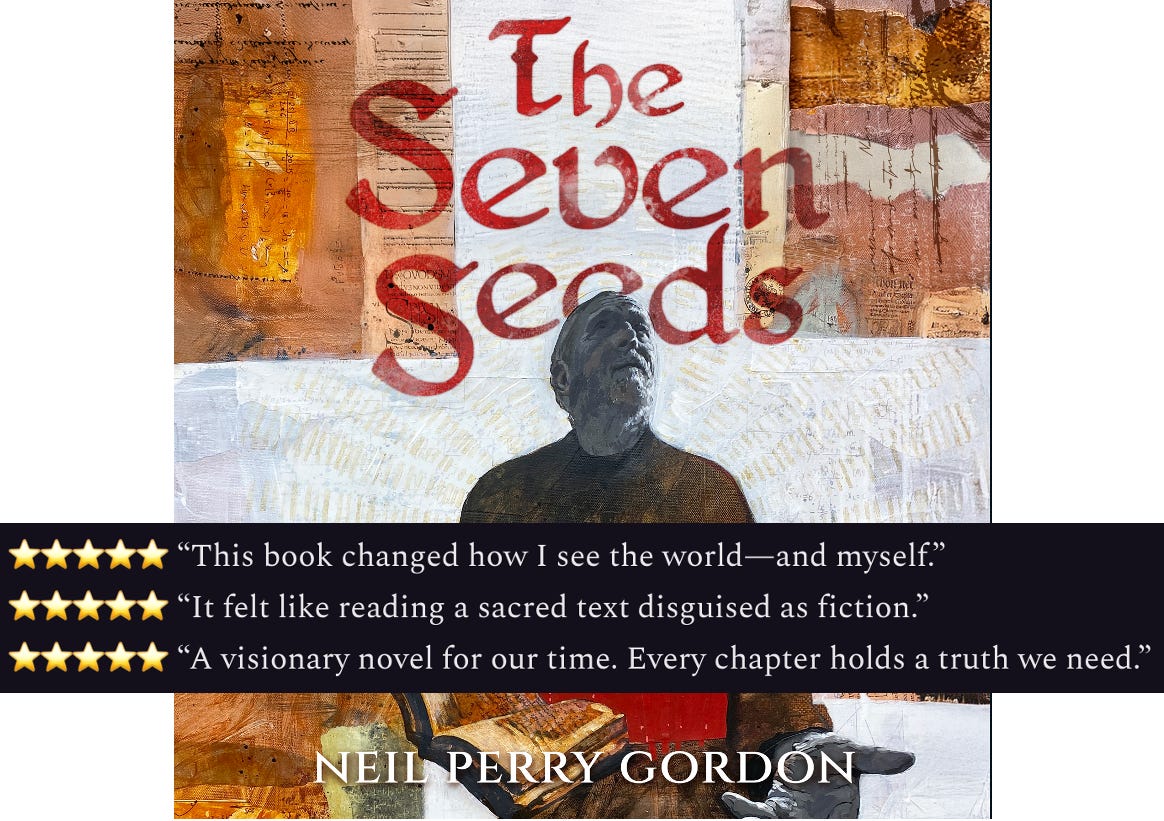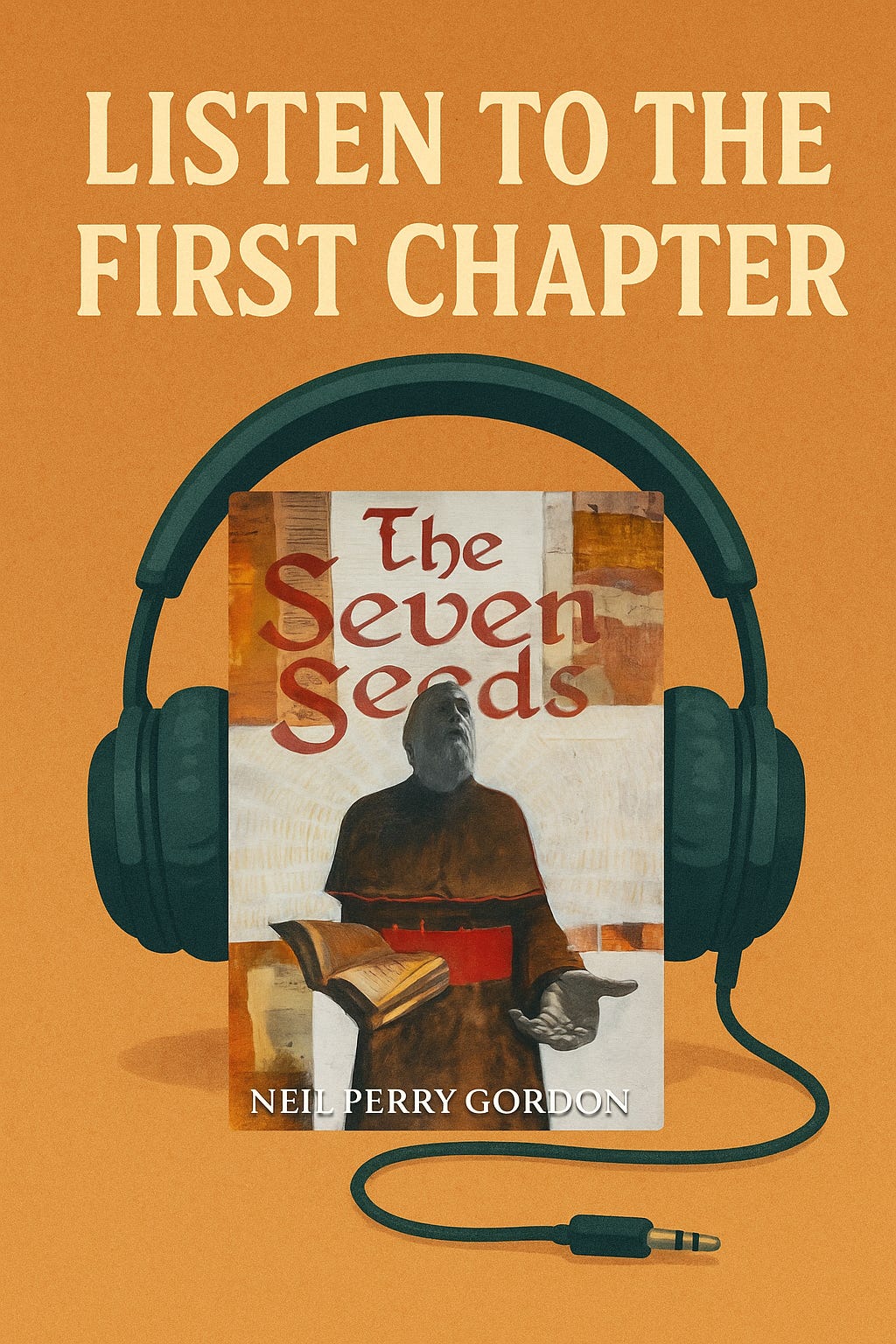We are, as a culture, endlessly fascinated by the mystery of our origins.
Maybe it’s the comfort of belonging to a tribe, or the thrill of discovering a royal, a rebel, or a revolutionary in our family tree. Shows like PBS’s Finding Your Roots speak directly to this hunger. We watch celebrities weep over rediscovered ancestors and buried traumas now unearthed through the tools of modern DNA.
And who can blame us?
Ancestry gives shape to identity. It’s tangible. It’s mapped, sequenced, documented. But here's the question I find myself circling more and more:
Blood-Line vs. Soul-Line
What if the true roots we’re meant to uncover aren’t found in our bloodlines, but in our soul-lines?
DNA can reveal how our ancestors migrated, the traits we carry, and which populations we’re statistically linked to. However, it can’t tell us why we dream in symbols that are foreign to our culture.
It doesn’t explain why we feel inexplicably moved by a melody from another continent…
...or why we’re drawn to a philosophy or spiritual path we’ve never consciously studied.
And that brings us to this deeper question:
How else do we explain family members with whom we feel no connection—or worse, those who are cruel, harmful, or abusive? Perhaps it’s not karma being repaid. Perhaps it’s something simpler, and more radical: they were never meant to be on your soul’s path to begin with.
Reincarnation Reframes Everything
If we accept the idea of reincarnation—as I do, along with many ancient traditions—then we’ve each worn many forms.
We’ve been men and women, rich and poor, oppressors and healers. Our soul’s history is not constrained by biology, geography, or name.
Your soul-line is composed of the beings who’ve journeyed with you through lifetimes. These are your true companions—the ones who show up again and again in different forms: as guides, adversaries, lovers, rivals, teachers.
They may not share your last name.
But they share your karma.
They share your mission.
When Ancestry Becomes Identity
Focusing only on bloodline can be a double-edged sword. Yes, it gives us pride and belonging—but it also fosters tribalism.
We inherit stories of resilience, as well as stories of conquest, rivalry, and division.
When we shift the lens to soul ancestry, something radical happens.
We stop asking:
And begin asking:
The Family of Spirit
This perspective dissolves boundaries. That stranger who feels instantly familiar?
A soul sibling.
That mentor who arrived at just the right moment?
A companion from another life.
Even the person who drives you mad might be part of a soul contract you forged before either of you were born.
The real work isn’t just mapping your genome.
It’s remembering your essence.
Look Deeper
So yes—watch Finding Your Roots.
Celebrate your heritage.
Honor your bloodline.
But don’t stop there.
Because the people who look like you, sound like you, and share your genes might not be part of your soul’s journey.
And the ones who feel like home, who awaken something ancient in you, may have walked beside you for lifetimes.
Your true family might not share your blood.
But they share your purpose.
Thanks for reading.
If this resonated with you, share it with a soul kin—and leave a comment below.
In The Seven Seeds: Shepherd of Souls, readers are invited into a daring reimagining of history where the collapse of Rome—and the rise of Christianity—never occurred. Instead, Rome thrives as an eternal empire under the iron grip of mythical gods and ruthless rulers. Author Neil Perry Gordon deftly crafts a narrative that is as much about the collision of civilizations as it is about the timeless battle between power and virtue.
The story follows Pope Gregory, wrenched from the familiar sanctity of the Vatican and plunged into a world that should never have existed. Rome is unyielding, magnificent in its grandeur, but suffocating under the weight of unchecked ambition. Gregory's journey from a man of faith into a reluctant revolutionary is compelling and deeply human. The discovery of an ancient manuscript detailing The Seven Seeds—compassion, humility, forgiveness, justice, wisdom, courage, and sacrifice—offers him a beacon of hope and a roadmap to challenge the foundations of this alternate empire.
One of the novel's greatest strengths is its rich, immersive setting. The streets of this unfallen Rome pulse with life, from the opulence of imperial palaces to the dark corners where the oppressed whisper of rebellion. Neil Perry Gordon excels at world-building, blending historical accuracy with imaginative flair. The gods of conquest and power feel both familiar and otherworldly, their presence looming over every page like a shadow that cannot be escaped.
But at its heart, The Seven Seeds is a story of transformation. Gregory's mission to sow these virtues into the soul of an empire resistant to change is fraught with danger and moral ambiguity. His allies are as unlikely as they are memorable—disillusioned soldiers, rebellious scholars, and even those who once served the gods he now defies. Each character is layered with complexity, their struggles reflecting the broader themes of redemption and resistance.
What sets this novel apart is its refusal to offer easy answers. The virtues Gregory champions are not presented as simple fixes to a broken world. Instead, they are seeds—fragile, vulnerable, requiring sacrifice and relentless effort to take root. As Gregory grapples with his doubts and confronts the merciless Emperor, readers are left to ponder the true cost of change and whether it is ever truly possible in the face of overwhelming power.
The Seven Seeds is more than just an alternate history; it's a meditation on the enduring struggle between might and morality. For those who crave epic narratives that challenge the boundaries of history and human nature, this novel delivers a story that is both thought-provoking and thrilling. It's a journey that will linger long after the final page, a testament to the enduring power of belief—even in a world that has forgotten it.









Your writing is exquisite. Poetic, philosophical, and not a word too many. This theme is a theme of our times. You addressed it clearly, respectfully, and thought-provokingly. I bow. Jaimen McMillan